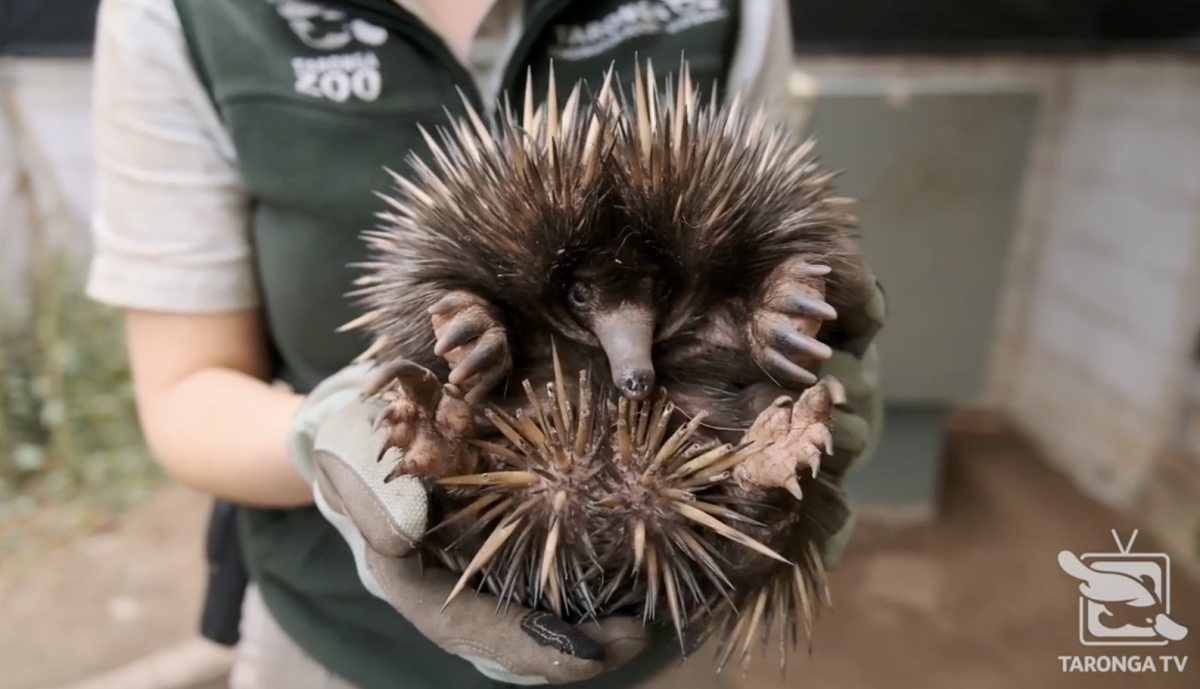On Friday, Taronga Zoo in Sydney, Australia, introduced a rare short-beaked echidna puggle in a video shared on Facebook. The new addition is around seven months old and has yet to be named.
Born in their breeding facility to mom Gunyi, the puggle—the term used to describe baby echidnas—was provided a natural environment with logs, rocks, pile of leaves to settle into after birth, according to a spokesperson from the Taronga Zoo.
Echidnas, also called spiny anteaters, are found commonly in Australia, Tasmania, and New Guinea. According to Britannica, they eat and breathe through a "bald tubular beak protruding from a dome-shaped body covered in spines."
According to New South Wales (NSW), Department of Planning, Industry and environment, the short-beaked echidna is not listed as endangered. But, because of its quiet and reclusive nature, it is not readily found in the wild.
"E-chid-dna not, this little puggle surprise has brought so much joy to our Australian Fauna Team. Estimated to be roughly 7 months old and weighing in at 1.7kg, this little short-beaked echidna puggle is growing from strength to strength," a post on the zoo's Facebook page read.
The zoo plans to soon exhibit the puggle to its guests and visitors.
"We are seeing some really nice natural behaviors here, some digging, trying to forage for food, breaking apart logs, all sorts of thing that you would see echidnas do in the wild, we're seeing those behaviors here," the spokesperson says in a video shared by the zoo. In the clip, she can be seen holding the little puggle, which resembles some sort of adorable cross between a porcupine and anteater.
E-chid-dna not, this little puggle surprise has brought so much joy to our Australian Fauna Team. Estimated to be roughly 7 months old and weighing in at...
"Echidnas, one of only two egg-laying mammals, are hard to breed in a zoo as they have complex courtship rituals with males only needed at very specific times," Taronga Zoo, ran by the Taronga Conservation Society Australia, told Reuters.
Research published by National Geographic in 2015 called long-beaked echidnas "secretive" and "harder to find." According to the report, scientists long thought that the mammal only lived in New Guinea. However, they found evidence that "the echidna, thought to have gone extinct in Australia some 10,000 years ago, lived and reproduced there as recently as the early 1900s and may still be alive on Aussie soil."
"It is a shy little echidna at the moment but as she grows up and gets more used to people, she will be on display with all of our echidnas here at Taronga," the spokesperson added in the puggle's introduction video.
For those dying to see more of the zoo's adorable addition, they advise that people keep up with them on their Facebook page and "Stay tuned for the name and gender announcement!"

Uncommon Knowledge
Newsweek is committed to challenging conventional wisdom and finding connections in the search for common ground.
Newsweek is committed to challenging conventional wisdom and finding connections in the search for common ground.
About the writer
To read how Newsweek uses AI as a newsroom tool, Click here.








